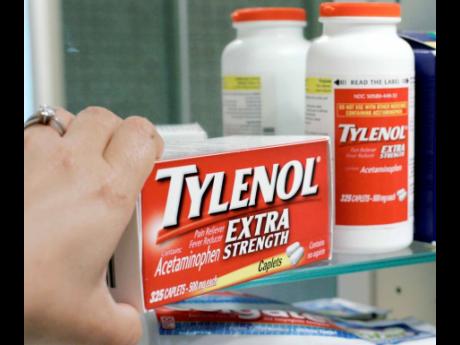Basil Jarrett | Economic impact of crisis communications
What a whirlwind week this has been in the United States. First, former President Donald Trump survives a assassination attempt and gets elevated to God-like status among the MAGA faithful, then Democratic President Joe Biden calls time on his re-election campaign, plunging the party into crisis as it seeks a viable replacement.
Thankfully, not all crises are as dramatic as the current one unfolding in the US. Even more thankfully, Jamaica was somewhat spared the full brunt of a Category 4 Hurricane Beryl, which would have surely left us in full crisis management and recovery mode.
But that’s just the nature of crises. They are sudden, unexpected and often pop up out of nowhere. Maybe it’s a product recall, a natural disaster, or a scandal that puts your company’s reputation on the line, but in the blink of an eye, a typical sunny day can turn into a storm, with your company at the epicentre. How you respond in those critical moments can make the difference between weathering the storm or being swept away by it. This is where robust crisis communication comes into play.
I’ve seen first-hand how businesses can either thrive or falter in the face of adversity. I’ve learnt over the years that investing in preparedness, especially in crisis communication, isn’t just about having a plan on paper, but it’s about safeguarding your economic future, maintaining customer trust, and ensuring business continuity.
ECONOMIC RATIONALE
A well-prepared crisis communication plan can significantly reduce the financial fallout from unexpected events. But don’t just take my word for it. Let’s take a look, first of all, at the numbers. The Harvard Business Review reports that companies that manage crises well can reduce the loss in value by as much as 50 per cent, compared to those that fumble their response. In other words, being prepared can save millions of dollars, protect jobs, and maintain market share. For instance, when a crisis hits, panic ensues, investors get jittery, customers lose confidence, and the media circles like sharks. Without a clear, effective communication strategy, misinformation spreads, exacerbating the situation. On the flip side, a prompt, transparent, and coordinated response can reassure stakeholders, mitigate reputational damage, and restore confidence quickly.
TYLENOL: 42 YEARS LATER
The world-famous Johnson & Johnson Tylenol tampering case in 1982 still serves as the benchmark for how to manage crises, even 42 years later. At the time, seven people died after taking cyanide-laced Tylenol capsules, leading to a nationwide panic. But Johnson & Johnson’s swift and transparent response became a textbook example of effective crisis communication. The company immediately pulled 31 million bottles of its cash cow, Tylenol, off the shelves at a cost of over $100 million. But they bolstered this action by also establishing a hotline for consumers, holding press conferences, and working closely with the media to keep the public informed.
The result remains the gold standard of crisis communications and crisis management as, despite the initial financial hit, the company’s reputation was preserved, consumer trust was maintained, and within a year, Tylenol’s market share rebounded from seven per cent to 30 per cent . The company emerged stronger than ever, inspiring wholesale changes across the entire pharmaceutical industry, setting new standards for product safety and corporate responsibility.
Now, let’s bring this closer to home. Jamaican businesses aren’t immune to crises. Whether it’s a natural disaster like Hurricane Beryl or a scandal affecting a local brand, the principles of effective crisis communication remain the same, as investing in preparedness can save businesses from severe financial losses and long-term reputational damage.
THE COST OF INACTION
On the flip side, the cost of not being prepared can be astronomical. Businesses that fail to manage crises effectively can face severe financial repercussions, including plummeting stock prices, lost sales, and hefty legal fees. Moreover, the long-term damage to a brand’s reputation can result in lost customer loyalty and diminished market position. But what does investing in preparedness look like? Well, for one, it involves developing a comprehensive crisis communication plan that includes risk assessment to identifying potential risks and vulnerabilities specific to your business, followed by stakeholder mapping to help understand who your key stakeholders are and how best to communicate with them.
It also involves the creation of a crisis management team, a dedicated team of professionals with clearly defined roles and responsibilities. Regular crisis-response training and drills are another critical component of any effective crisis response mechanism which ensures that everyone knows their role in a crisis.
It’s also useful to establishing multiple communications channels for disseminating information quickly and effectively, as well as having robust monitoring and evaluation processes in place.
Investing in robust crisis communication plans is not just a smart move — it’s an economic necessity. By being prepared, businesses can protect their financial health, maintain customer trust, and ensure long-term success. The Johnson & Johnson Tylenol debacle may have been over four decades ago, but it still serves as a useful road map for anyone managing crises and crisis response today.
Major Basil Jarrett is a communications strategist and CEO of Artemis Consulting. Follow him on X, formerly Twitter, Instagram, Threads @IamBasilJarrett and linkedin.com/in/basiljarrett. Send feedback to columns@gleanerjm.com.

